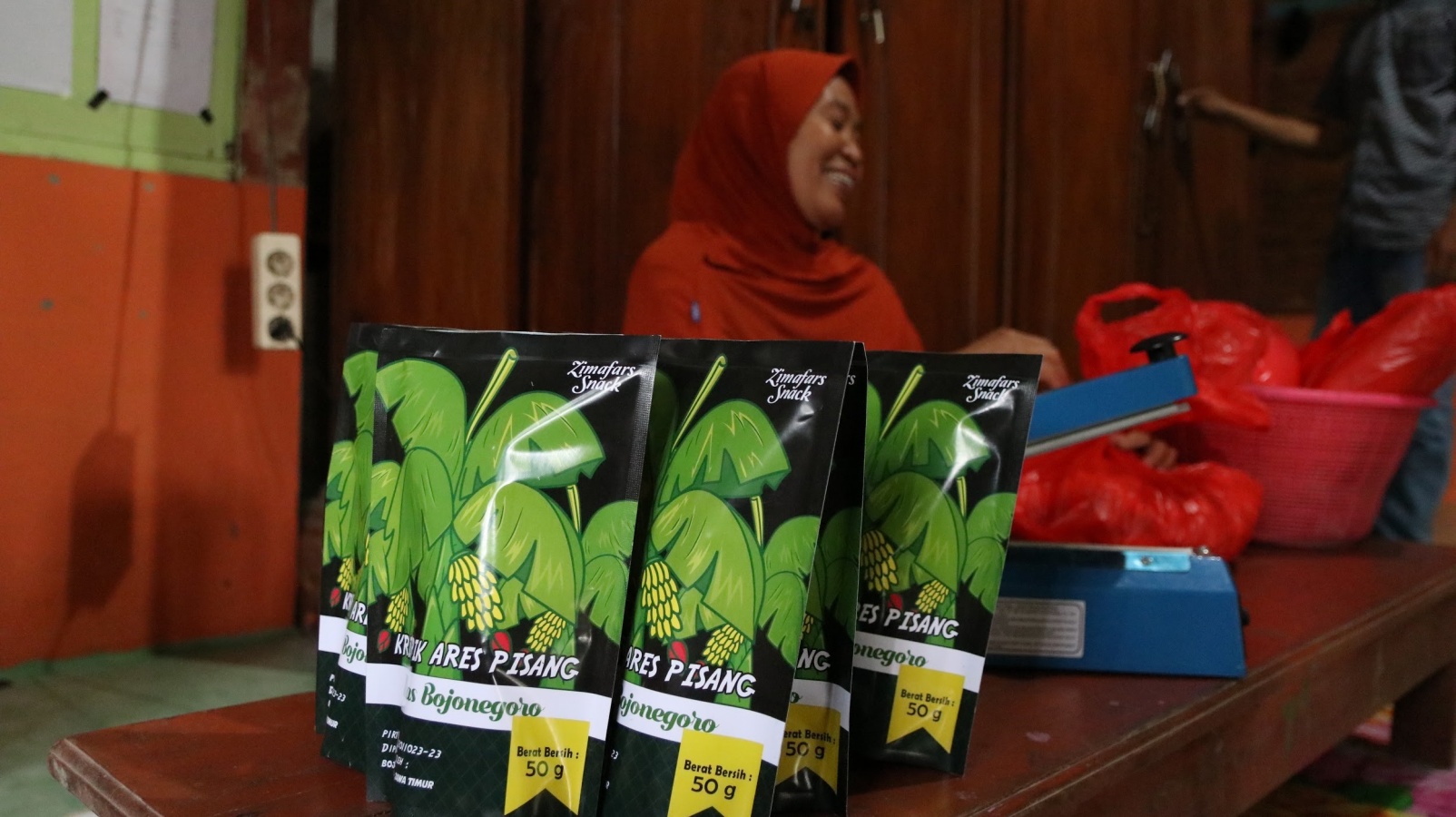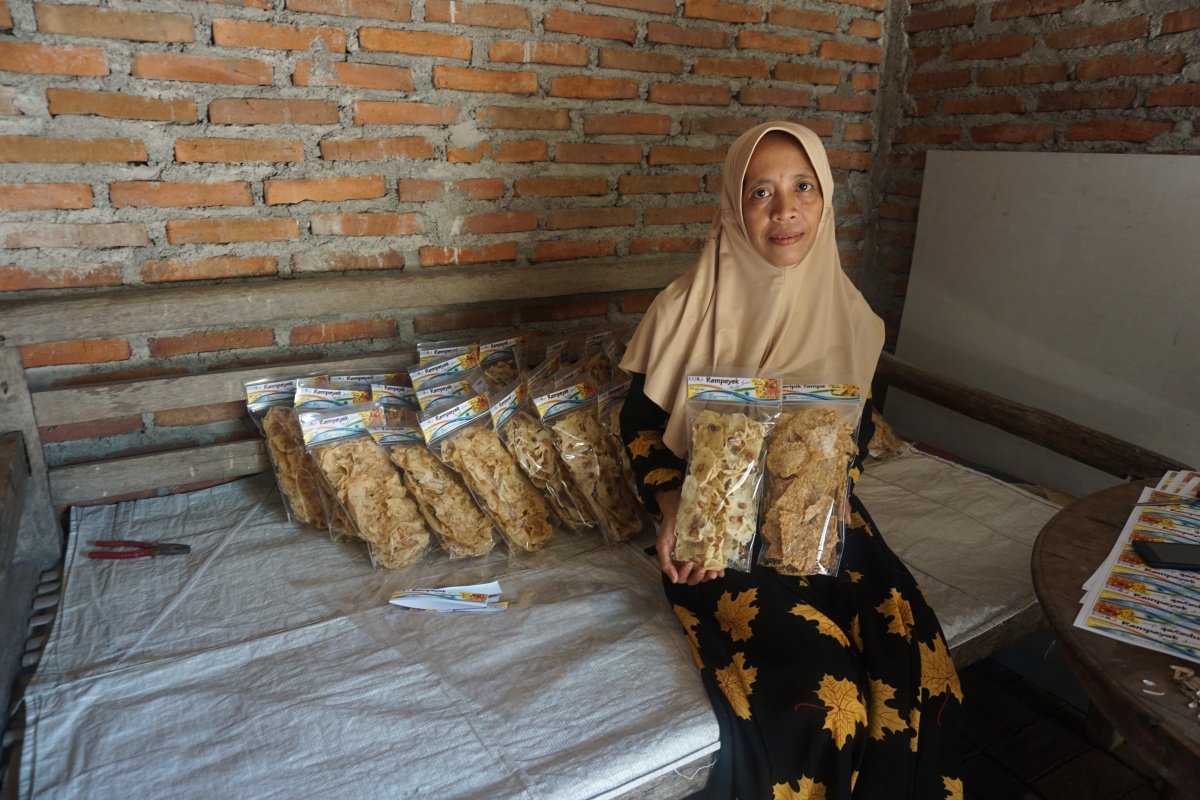Indonesian homemade food and beverage business owner are required to obtain a home industry permit from the Indonesian Food and Drug Monitoring Agency (BPOM). In 2018 a regulation was passed which stipulates that a home industry registration number and a certificate are required to guarantee that a product is qualified for distribution. This permit is key for micro-entrepreneurs to be able to tap into greater markets and grow their businesses.
79% of women entrepreneurs participating in Kopernik’s Wonder Women program in East Java own food and beverage businesses. However, a majority of these businesses did not have BPOM’s home industry permit when they first joined the program, mostly due to limited information about the requirements and steps needed to obtain the permit. Many of them also felt nervous when they have to meet government officials from the health department. These factors have been a significant obstacle for the women entrepreneurs who wanted to grow their businesses.
 Many women entrepreneurs did not have home industry permits before they joined the Wonder Women program.
Many women entrepreneurs did not have home industry permits before they joined the Wonder Women program.
(Photo credit: Fauzan Adinugraha/Kopernik)
In order to support women entrepreneurs in developing their businesses, the Wonder Women program has accompanied 33 business owners through the process of obtaining the required home industry permits. Although it might seem daunting at first, the process of applying for the permit is actually not too complicated. Business owners need to submit a form along with a sample of their product to be tested by the health department. A certificate will be issued once the required paperwork has been submitted and product testing completed and includes mandatory participation in a food safety workshop and a visit by the health department to the production site. This process is mandated by the health department to ensure the safety of the products sold in the market.
One of the micro entrepreneurs who obtained a home industry permit is Liniswati, a peyek - deep-fried savoury crackers made of flour and peanuts - seller in Bojonegoro, East Java who joined the Wonder Women program at the start of 2018. She said that since she obtained the permit, she now feels safer and is able to focus more on running her business. One time for example, she was visited by the police after allegations that her product used plastic in the mixture and she only needed to show the permit to deny such claims, as her product had been tested by the health department prior to receiving the certification.
“At first I was reluctant about the permit. I was scared that it would cost me millions of rupiah. But with the help of Kopernik, I finally applied for the permit and as it turns out, it didn’t cost much. It was not as scary as I thought,” said Liniswati.
Although Liniswati was reluctant at first, she has successfully obtained a home industry permit with the support of Kopernik. (Photo credit: Puji Setiyoningrum/Kopernik)
Roseni, a snack maker in Tuban, has also enjoyed the benefits of being issued a home industry permit. The required training on food safety opened opportunities for her to join a micro, small and medium business group in Tuban. With a permit in hand, she is now able to supply her snacks to Tex Mart, one of the main gift and souvenir centers in the area.
For Lismukrindun, a snack producer in Bojonegoro, it was a different story. She already had a permit when she joined the Wonder Women program in 2018, however she faced some challenges when the permit expired that year. Lismukrindun sells chips made of cassava. Hundreds of her products which had already been sent to the shelves of a local supermarket in Tuban – Samudra Supermarket – were recalled due to the expired permit. With support from Kopernik, Lismukrindun successfully extended her permit. Her products are now back on the shelves of several stores in Bojonegoro as well as in Tuban.
Lisnawati, Lismukrindun, and Roseni are just some of the women entrepreneurs whose businesses have thrived since they obtained a home industry permit. By assisting micro, small and medium entrepreneurs to improve and grow their businesses, the Wonder Women program aims to support economic growth in rural areas, and play an active role in the effort to empower women and reduce poverty in the last mile.



